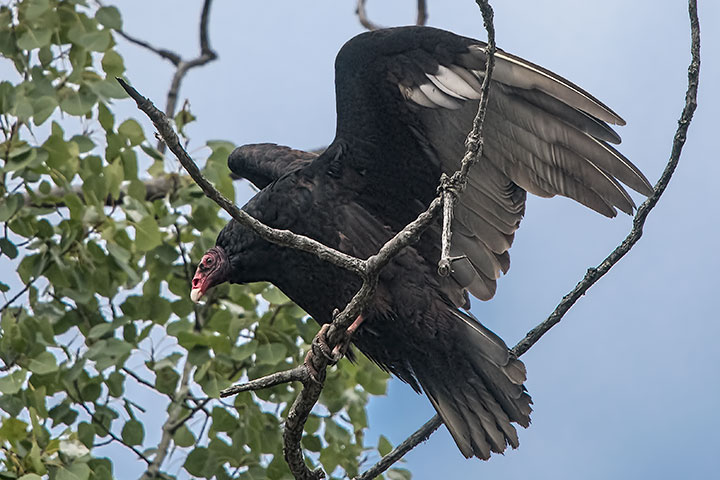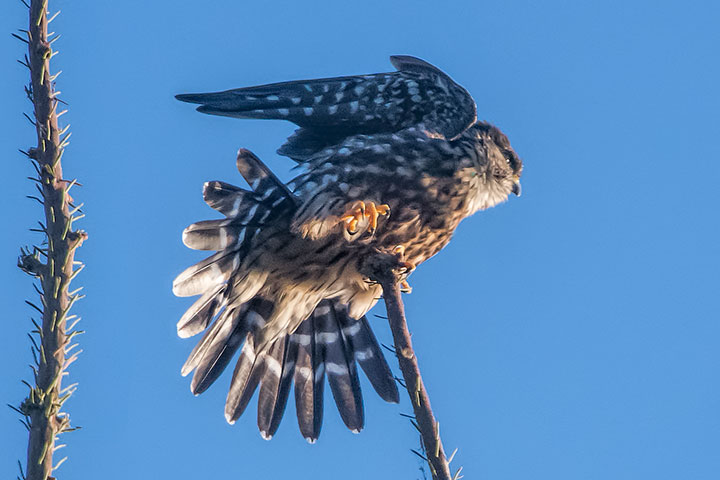I have long heard the question: Why don’t birds in a flock collide? It is an odd question in that it does not ask if they collide, but why they don’t collide. The short answer is: They do collide, and fairly often. However, they have the ability to make a quick recovery.
A similar question is: Why don’t perching birds lose their balance? The short answer is: They do lose their balance, and fairly often. However, they have the ability to make a quick recovery. To verify this watch perching birds.
More important than the complete avoidance of small errors is the ability to recover from them. Here are two avian examples from this last weekend.
A Turkey Vulture perched in a tree, but before long it lost its balance and had to use its wings and tail to regain its position.

A merlin was perched atop the leader of a tree when it lost its balance. It too had to use its wings and tail to regain balance so it could continue scanning for prey.


Perching imbalance
I have long heard the question: Why don’t birds in a flock collide? It is an odd question in that it does not ask if they collide, but why they don’t collide. The short answer is: They do collide, and fairly often. However, they have the ability to make a quick recovery.
A similar question is: Why don’t perching birds lose their balance? The short answer is: They do lose their balance, and fairly often. However, they have the ability to make a quick recovery. To verify this watch perching birds.
More important than the complete avoidance of small errors is the ability to recover from them. Here are two avian examples from this last weekend.
A Turkey Vulture perched in a tree, but before long it lost its balance and had to use its wings and tail to regain its position.

A merlin was perched atop the leader of a tree when it lost its balance. It too had to use its wings and tail to regain balance so it could continue scanning for prey.
